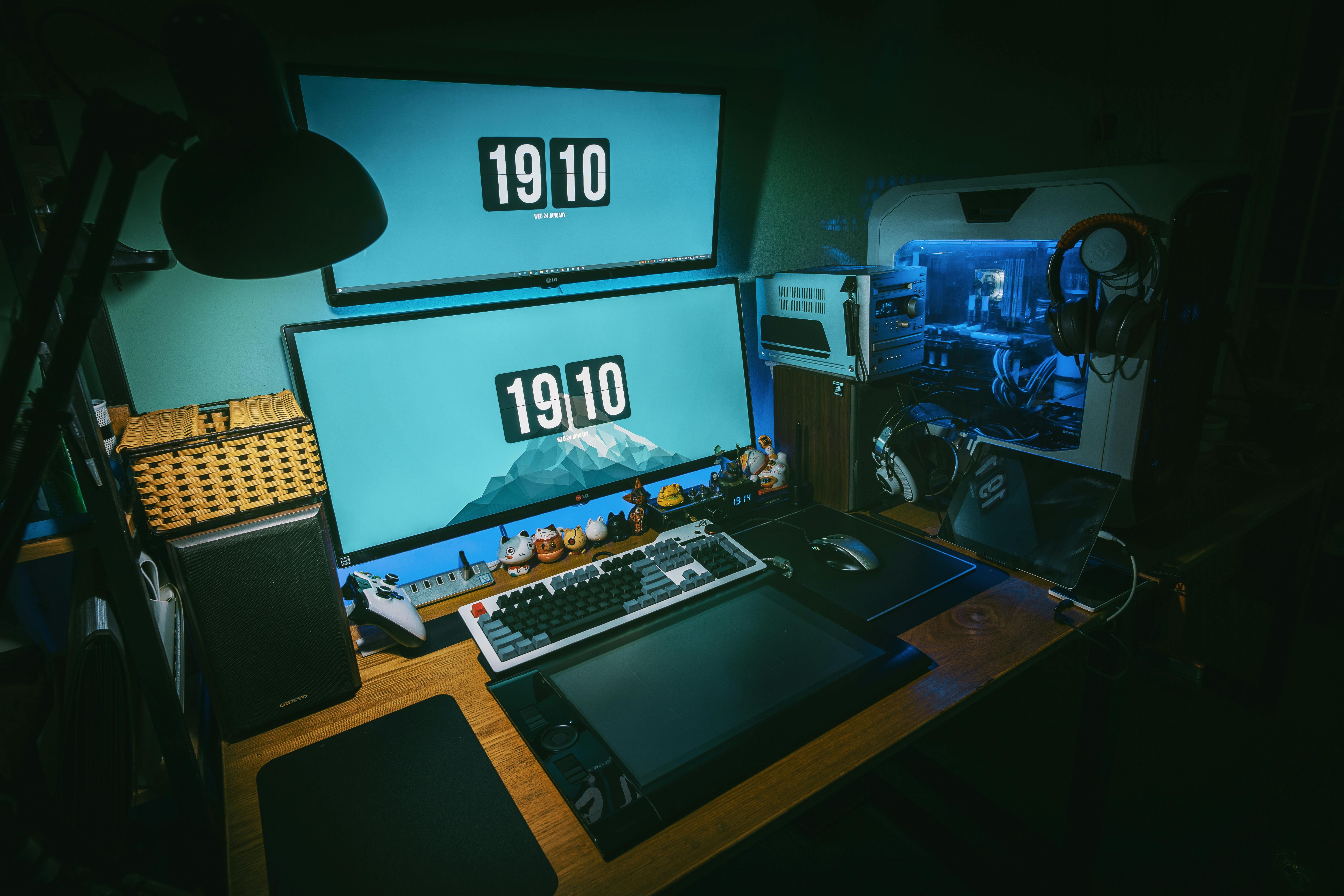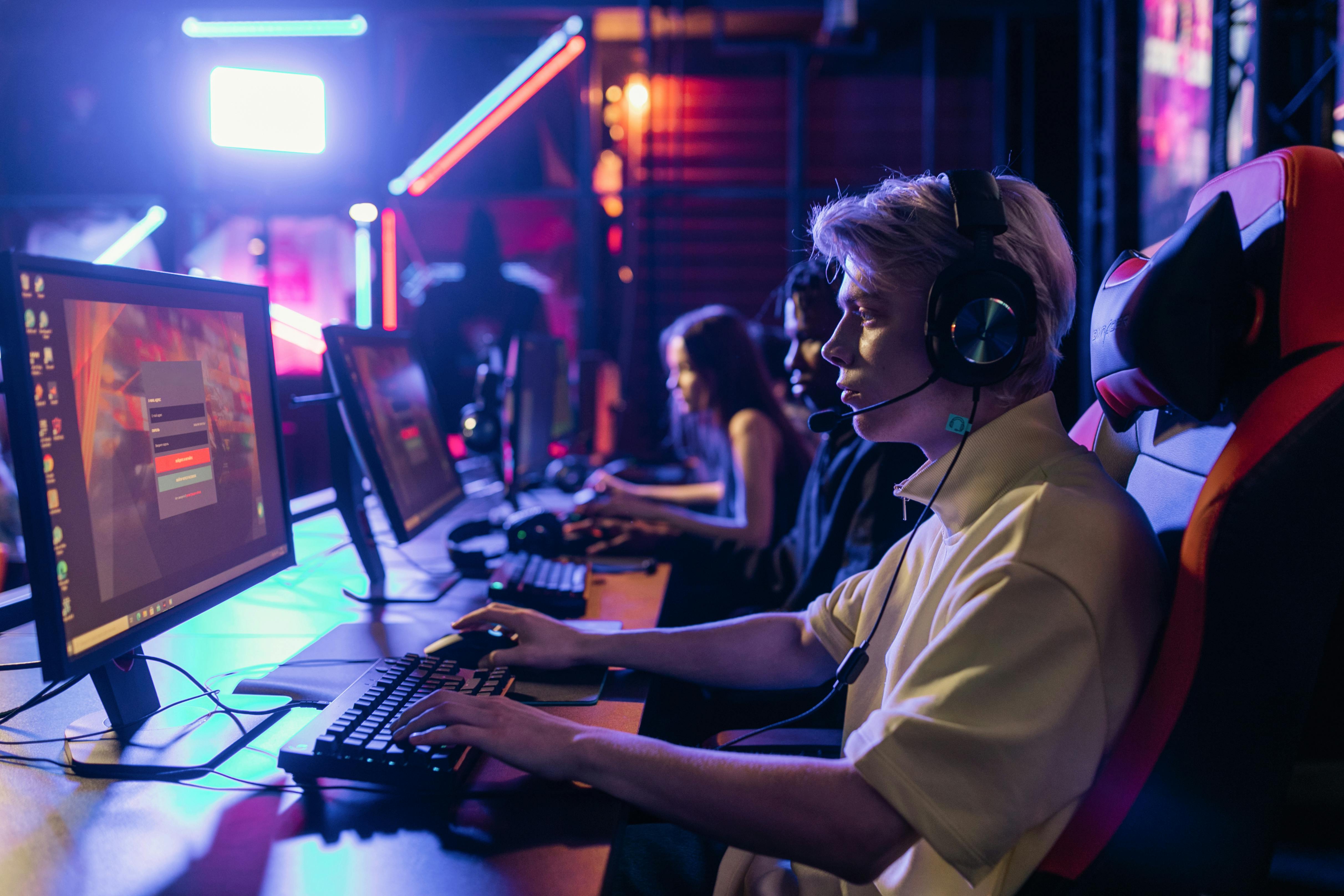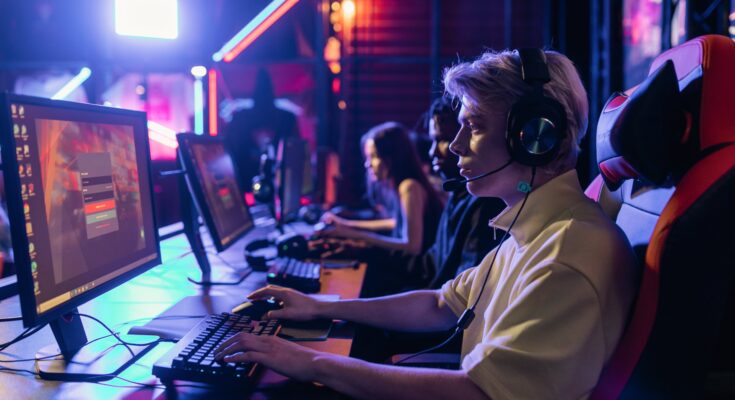Gaming Jobs For a Secure Future
In the dynamic landscape of the modern job market, one industry stands out for its rapid growth and innovation – the gaming industry. What was once considered a niche hobby has transformed into a multi-billion dollar global phenomenon, creating a plethora of opportunities for individuals to turn their passion for gaming into lucrative careers. This article delves into the diverse world of gaming jobs, exploring the various roles available, the skills required, and the burgeoning prospects within this exciting field.
The Evolution of Gaming Jobs:

Image via Pexels.com
The perception of gaming has evolved significantly over the years. Once confined to the realms of entertainment and leisure, gaming has now become a mainstream cultural force. This shift has not only transformed the way people consume content but has also given rise to an entire industry dedicated to creating, marketing, and maintaining video games.
The gaming industry is not just about playing games; it encompasses a wide range of professions, from game development and design to marketing, community management, and esports. As technology continues to advance, the demand for skilled professionals in these areas is skyrocketing, making gaming jobs a promising and viable career choice.
Types of Gaming Jobs:
Game Development:
- Game Designers: These creative minds are responsible for conceptualizing and designing the gameplay, characters, and overall user experience. They work closely with developers to bring their vision to life.
- Game Developers: Programmers who write the code to make the game function. They are crucial in translating the design into a functional and interactive experience.
- Artists and Animators: Visual elements of a game, including characters, environments, and animations, are crafted by artists and animators. They give life to the game’s virtual world.
Esports:
- Professional Players: Competitive gaming has evolved into a professional sport, with players earning substantial incomes through tournaments, sponsorships, and streaming.
- Coaches and Analysts: Behind every successful esports team, there are coaches and analysts who strategize, analyze gameplay, and help players improve their skills.
- Event Organizers: Esports events have become massive productions. Event organizers coordinate everything from venue selection to broadcasting, ensuring a seamless experience for both live and online audiences.
Marketing and Community Management:
- Marketing Specialists: These professionals promote and advertise games to the target audience. They strategize marketing campaigns, manage social media, and engage with the gaming community.
- Community Managers: Building and maintaining a strong community around a game is crucial for its success. Community managers interact with players, gather feedback, and foster a positive gaming environment.
Quality Assurance (QA):
- Game Testers: Ensuring a game is free of bugs and glitches is essential for a smooth player experience. Game testers play a crucial role in identifying and reporting issues during the development process.
- Quality Assurance Leads: QA leads oversee testing processes, manage testing teams, and collaborate with developers to address and resolve identified issues.
Skills Required for Gaming Jobs:

Image via Pexels.com
While the specific skills required depend on the job role, there are some common skills that can enhance one’s prospects in the gaming industry:
Technical Proficiency:
Game developers and programmers should have a strong command of programming languages like C++ and Python.
Artists and animators need proficiency in graphic design and animation software.
Esports professionals should have exceptional skills in their respective games.
Creativity:
Game designers and artists must have a creative mindset to develop innovative and engaging content.
Marketing specialists need creative strategies to promote games effectively.
Communication Skills:
Community managers, marketing specialists, and esports professionals must communicate effectively with both internal teams and the gaming community.
Adaptability:
The gaming industry evolves rapidly, and professionals must stay updated on the latest technologies and trends.
Problem-Solving:
QA professionals, particularly game testers, should have a keen eye for detail and a knack for identifying and solving problems.
The Booming Job Market:

Image via Pexels.com
The gaming industry’s exponential growth has translated into a booming job market, offering a wide array of opportunities for individuals with diverse skills and interests. According to industry reports, the global video game market is expected to surpass $200 billion in revenue in the coming years, making it one of the most lucrative sectors in the entertainment industry.
Esports, in particular, has witnessed a meteoric rise, with tournaments filling stadiums and attracting millions of online viewers. This surge in popularity has created a demand for skilled professionals, from players and coaches to event organizers and broadcasters. Esports teams are now backed by major sponsorships, and players can earn substantial incomes through salaries, prize money, and streaming.
The demand for game developers and designers is also soaring. As gaming technology becomes more sophisticated, studios are on the lookout for talented individuals who can push the boundaries of creativity and innovation. This has led to a significant increase in job opportunities for programmers, artists, animators, and other technical roles.
Moreover, the marketing and community management aspects of the gaming industry have become critical for a game’s success. With the rise of online gaming communities and social media platforms, companies are investing heavily in marketing specialists and community managers to engage with players, build brand loyalty, and drive game sales.
The Role of Education and Training:
As the gaming industry becomes increasingly competitive, having the right education and training is crucial for aspiring professionals. Many universities and specialized institutions now offer programs and degrees in game design, game development, esports management, and related fields. These programs provide students with the necessary skills and knowledge to enter the industry with a competitive edge.
Online platforms and courses have also become popular for those looking to acquire specific skills, such as programming languages, graphic design, or marketing strategies. The accessibility of these resources has democratized education in the gaming sector, allowing individuals from diverse backgrounds to pursue their passion and enter the industry.
Networking and Building a Portfolio:

Image via Pexels.com
In the gaming industry, networking and building a strong portfolio are key to landing desirable positions. Attending industry events, participating in game jams, and connecting with professionals through online platforms can open doors to job opportunities. Esports players often start by participating in local tournaments before gaining recognition on a larger scale.
For game developers and designers, building a portfolio showcasing projects, game prototypes, or contributions to open-source projects can significantly enhance their chances of securing a job. Many studios value practical experience and the ability to demonstrate one’s skills through tangible examples.
USEFUL LINKS:
Click here to know more
Know Gaming history and facts here




